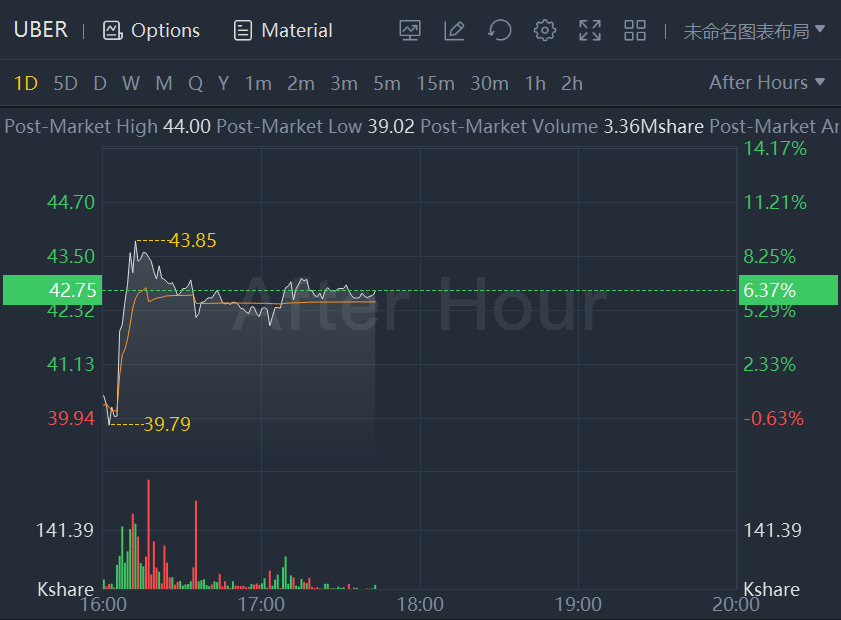Uber reported fourth-quarter earnings after-the-bell on Wednesday. The company beat analyst estimates on revenue for the quarter and said it’s starting to bounce back from headwinds caused by the omicron coronavirus surge.
The company’s stock was up more than 6% in after hours trading.
Here are the key numbers:
- Earnings per share: 44 cents, which is not comparable to estimates.
- Revenue:$5.78 billion vs $5.34 billion, according to a Refinitiv survey of analysts.
For the fourth quarter of 2021, Uber reported $5.8 billion in revenue.
The California-based company reported adjusted EBITDA of $86 million for the quarter ended Dec. 31, significantly ahead of analyst expectations for $62 million.
That compared with a loss on the same basis of $454 million a year ago. It marked the company's second profitable quarter since it first reported positive adjusted EBITDA in the third quarter.
Uber's delivery unit, largely made up of its Uber Eats restaurant service, posted its first adjusted EBITDA profit of $25 million, showing Uber's ability to scale the once loss-making operation against strong competition.
Delivery emerged as one of the company's main strengths during the pandemic. Steady delivery bookings signal that the rebound in rides has not come at the expense of food delivery, with consumers sticking to the service even as the economy reopens.
Rides recovery in the fourth quarter was driven by strong demand for airport trips, which tripled compared to last year. Airport rides are among the most profitable routes for Uber.
Uber also posted net income of $892 million, as it revalued its stakes in Southeast-Asian Grab and self-driving company Aurora Innovation Inc, just a quarter after it reported a $2.42 billion net loss driven by its stake in Chinese ride service Didi and stock-based compensation.
The company significantly increased its marketing spend in the fourth quarter, upping sales and marketing expenses by 36% on a quarterly basis. Uber launched several large Uber Eats advertising campaigns in the U.S. market at the end of last year.
The company's first-quarter outlook fell short of Wall Street expectations as the Omicron coronavirus variant dampens travel, but Uber Chief Executive Dara Khosrowshahi said business had started picking up into February.
"While the Omicron variant began to impact our business in late December, mobility is already starting to bounce back, with gross bookings up 25% month-on-month in the most recent week," Khosrowshahi said in a statement.
Uber forecast lower-than-expected adjusted profit in the first three months of 2022, as the Omicron coronavirus variant dampened travel demand in January. Smaller U.S. rival Lyft Inc issued a similar warning on Tuesday.
Uber forecast first-quarter adjusted earnings before interest, taxes, depreciation and amortization, a measure that excludes one-time costs, primarily stock-based compensation, to come in between $100 million and $130 million.
That compares with analysts' estimate of $149.57 million, according to Refinitiv data. At $25 billion to $26 billion, Uber's projection for gross bookings also came in below estimates of $27.29 billion.

